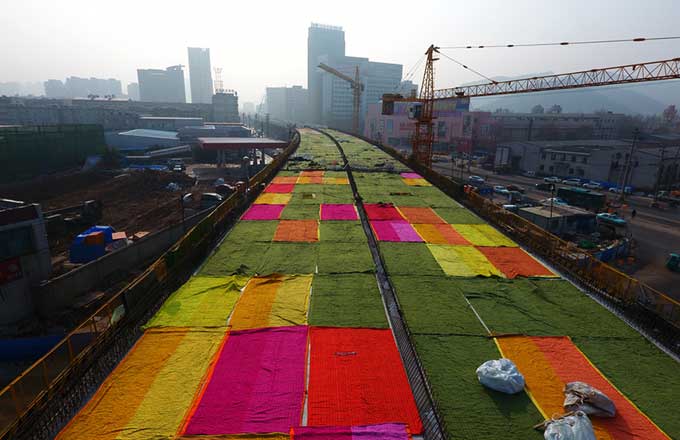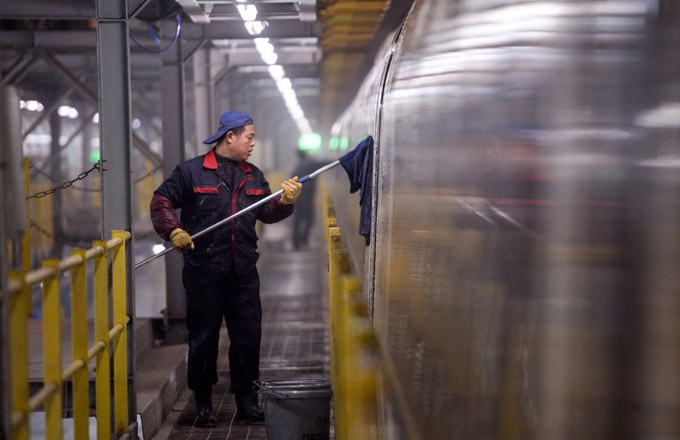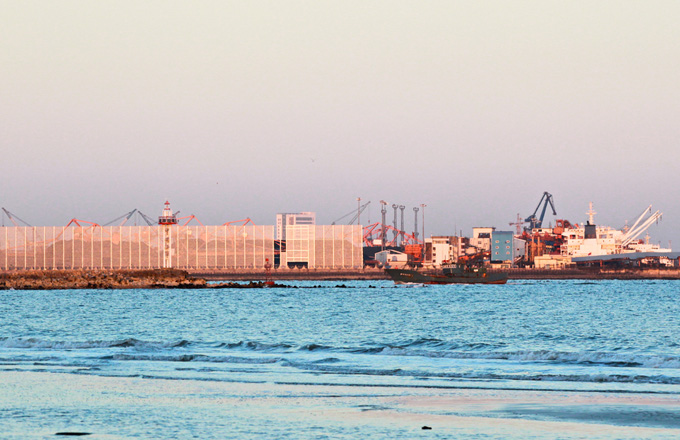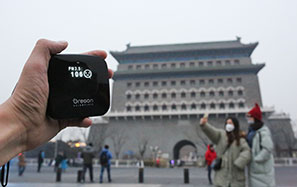Doubts surface over reorganizing railways
NPC deputies fear Tibet might not get much new construction
Deputies to the National People's Congress expressed concern that the construction of a non-profit railway in western regions may be jeopardized if the Ministry of Railways is split, with its regulatory powers going to the Ministry of Transport, and its operations handed over to a commercial entity.
"The railway system in southern Xinjiang, such as in Hotan, is hardly going to be profitable, but it plays an important strategic role. As a profit-driven company, I wonder how the new railway company will deal with the relationship between regional development and profit," said Nur Bekeri, chairman of the Xinjiang Uygur autonomous region.
Nur made the comments during a group discussion about the government's restructuring plan on the sidelines of the NPC.
"How can the company continue to invest in railway construction in border areas in western China while losing money?"he asked. Xinjiang shares borders with eight countries, including Pakistan, Kazakhstan and Kyrgyzstan.
Qiangba Puncog, deputy Party chief of the Tibet autonomous region, said there would be uncertainty if the Ministry of Railways ceased to exist because under the current system it's easier for the ministry to approve construction plans in the region.
"The cost of building railways in high plateau areas is extremely high and it is not something a company would like to do if it doesn't make money," he said.
"The railway company might focus its business in developed areas because it's more profitable, and pay less attention to less populated areas," said Lobsang Jamcan, chairman of Tibet.
"It helped the locals a great deal in terms of social development when the Qinghai-Tibet railway was constructed. More railways should be built in the region in the future."
He said in China's border areas, the construction of a railway system should not only be profit-driven, but take national and border defense and social benefits into consideration.
Strategic concerns were raised by Wang Mengshu, a member of the Chinese Academy of Engineering.
"Take the Qinghai-Tibet railway as an example. Many routes are non-profitable but have strategic value. Which body would cover such losses if the ministry is split? Also, the transportation of disaster relief goods and equipment used in cross-regional military exercises is free. Who will pay for that in the future?"
Ding Zhongli, vice-president of the Chinese Academy of Sciences, said the government could provide subsidies to the railway company if its business loses money in western regions.
According to the institutional restructuring and functional transformation plan released by the State Council on Sunday, the Ministry of Railways' administrative powers will be incorporated into the Ministry of Transport. They include planning railway development, drafting technical standards and supervising operational safety and construction quality.
Meanwhile, the China Railway Corp will be established to take over the ministry's commercial functions, including organizing railway transportation and construction.
Contact the writers at cuijia@chinadaily.com.cn and wanghuazhong@chinadaily.com.cn
An Baijie contributed to this story.
- Private capital to 'break railway monopoly'
- State-owned railway project attracts investors
- Railway reform 'a step forward', but success not guaranteed
- Officials worry over railway ministry's debts
- China to dismantle Railway Ministry
- China to wrap up Tibet railway extension line
- Railway linking China, ASEAN becomes operational
- China Railway Tunnel to compensate villagers
- China's railways brace for post-holiday travel rush
- Number of railway passengers falls as festival starts






















